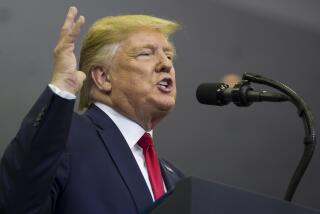U.S. Cultural Imperialism
- Share via
Jacob Heilbrun’s column, “U.S. vs. Asia: Culture as Diplomacy” (Opinion, Dec. 29), provides reassurance to any who may have feared that American cultural imperialism had died. Alas, it has not. What other conclusion can one draw from the absurd statement that “Giving up on the universality of American culture, however, would amount to giving up on America itself”? Does Heilbrun really want the entire world to resemble the United States?
Pushing for human rights is one thing. But to claim that respect for the integrity of different value systems--whether political or cultural, whether “Asian” or “European” (keeping in mind the huge variation within these categorizations and the nebulousness of whatever is meant by “Asian values”)--somehow poses a threat to the American nation is delusionary sentimentalism. The U.S. political system may represent a fairly successful experiment in democratic government, but it does not represent the last word on the subject. American society does suffer from high crime and murder rates.
To naively preach the absolute universality of something called “American values” for the rest of the world reveals the same sort of dangerous arrogance characteristic of the truth claims made by any number of religions and regimes in history.
MARK ELLIOTT
Assistant Professor, History
UC Santa Barbara
More to Read
The biggest entertainment stories
Get our big stories about Hollywood, film, television, music, arts, culture and more right in your inbox as soon as they publish.
You may occasionally receive promotional content from the Los Angeles Times.









